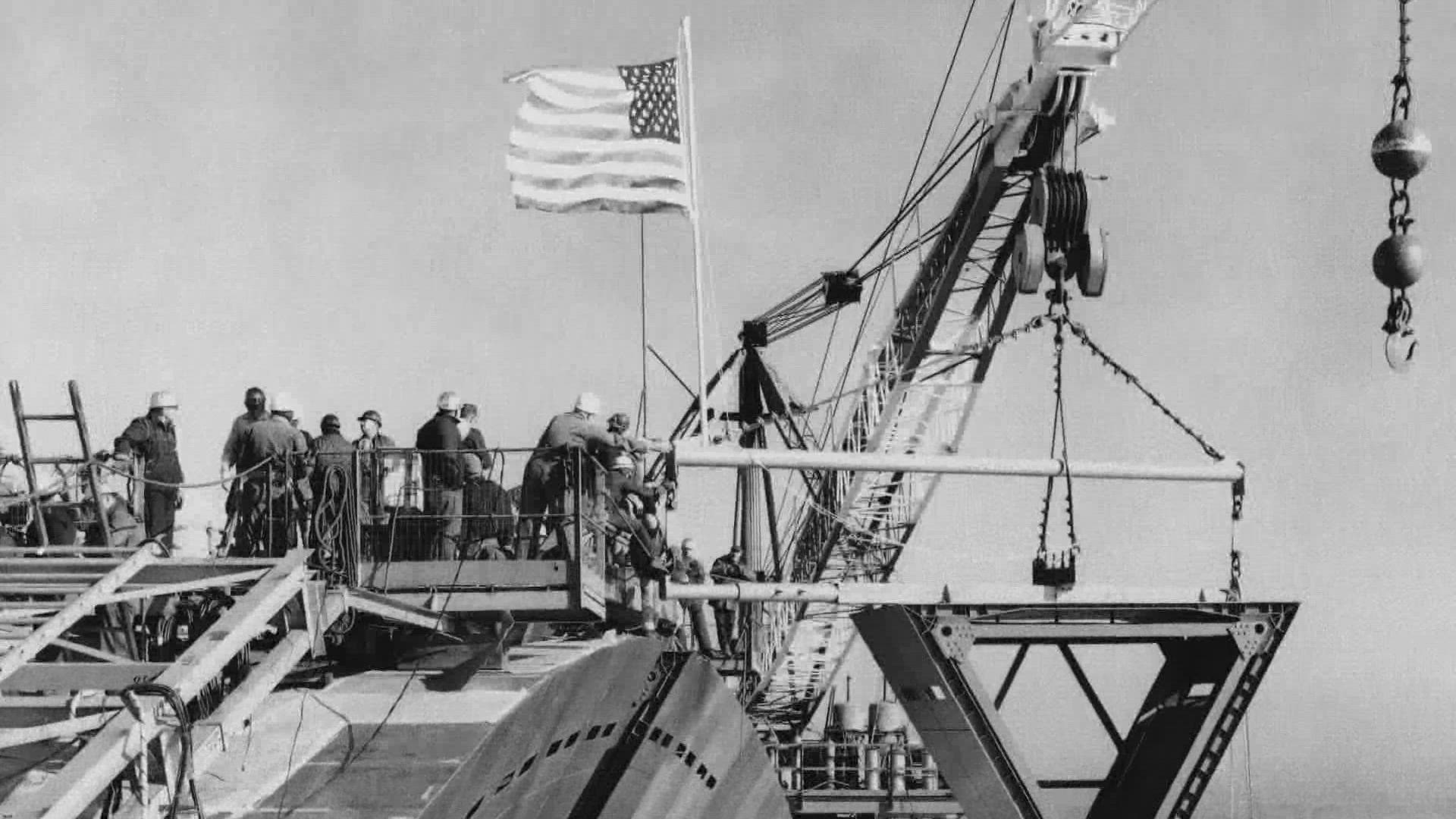ST. LOUIS, Missouri — Few American cities can claim a richer labor history than St. Louis.
"St. Louis is a very, very strong union town," Jake Hummel, president of Missouri AFL-CIO, said.
The Missouri AFL-CIO, that is located in Jefferson city, shows people what unions do, how to form a union and take action.
U.S. Secretary of Labor Marty Walsh, the former mayor of Boston, echoed the sentiment.
"They have a proud history in St. Louis," Walsh told 5 On Your Side.
Both Walsh and Hummel grew up in union homes, and worked in union jobs early in their careers before eventually taking positions as labor officials.
"It's a time of remembrance, but it's also right now it's a time of resurgence," Hummel said. "We see workers organizing at a record pace."
Walsh pointed to the economic upheaval during the pandemic as one factor driving new interest in unionizing.
"You're seeing like a resurgence of the labor movement," Walsh said. "I don't want to say it's going back to your roots, but it is kind of going back to the roots because they're looking at new industries that have never been thought about being organized."
"I mean, you think about Starbucks coffee shops...REI got organized, the [camping] store...and around the country, you have other retail stores getting organized...," Walsh said.
The expansion of unionizing into the retail and service industries represents a new awareness around income inequality, Hummel said, a movement that was formed when wages were much lower and workplace safety standards were far more uncommon.
"We've had a lot of members that have died for their rights to form a union," Hummel said during an interview at the Henry Miller Museum, the birthplace of the first International Brotherhood of Electrical Workers (IBEW).
The St. Louis facility is named in honor of Henry Miller, who was the first president of IBEW that later died on the job.
"In the 1890s, I think you saw the birth of workers' struggle coming off of the Civil War through Reconstruction," Hummel said. "There were no safety measures. Wages were were incredibly low. We had a lot of deaths, especially in this line of work."
Many stories of struggle include chapters of triumph and victories for laborers, but those pages rarely included women and workers of color.
Now energized by a new burst of unionization across the country, local trade unions are taking new steps to open doors for workers to get their first foothold in jobs that can change their future.
While civil rights and labor movements often locked arms in the streets, women and workers of color didn't always see the same opportunities on the job.
"There were barriers for women and minorities to get into the trades," Hummel said.
Laron Hutchins ran into one of those barriers as a young man.
"I really had an interest in construction for a while," he said. "But you never really know like...where to go...how to start to get into it."
After Hutchins struggled to find regular work and saw some of his family earn low wages at non-union jobs, he turned to the streets and ended up in federal prison for felony possession of a gun.
While he takes responsibility for his actions, he said it was hard for people who grew up in his neighborhood to see hope for a promising career.
"It's easy to just fall into what's the norm," he said as he referred to crime in his past. "It's the norm...you walk out the house...you see it...it's easy to just settle for it."
He also said once you get a black eye on your record, a lot of good paying jobs don't want to give you the chance.
While leaving federal prison, he said he learned about the Building Union Diversity (BUD) program offered by the Missouri Works Initiative through the state chapter of the AFL-CIO.
Hutchins said he jumped at the chance, learned new job skills, and quickly became a proud member of Glaziers Local 513.
"Labor Day means everything to me," he said.
He goes to work installing windows on commercial jobsites with a brotherhood that has his back and helps him secure regular work and good wages.
He asked where would he be without the union?
"Probably working in some factory, doing the same thing every day, getting paid the bare minimum," he said. "Thinking about going back to the streets to be honest."
"Workers are waking up and realizing that they have power, and they shouldn't be taken for granted," Hummel said.

